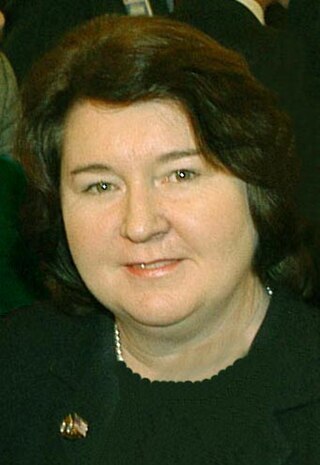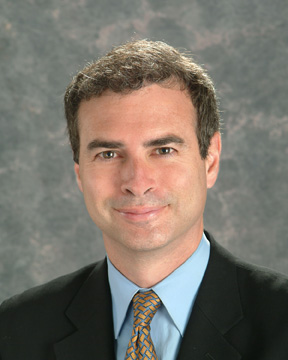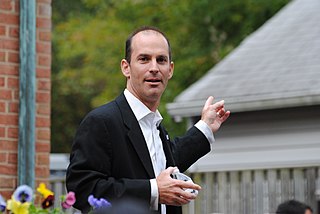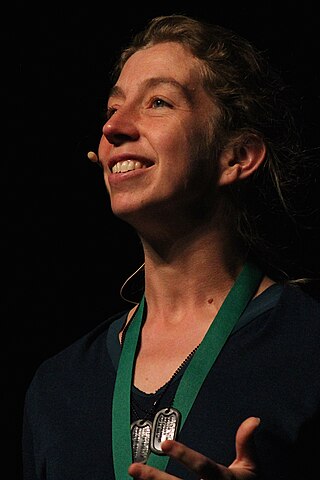
Ronald Linn Rivest is a cryptographer and an Institute Professor at MIT. He is a member of MIT's Department of Electrical Engineering and Computer Science (EECS) and a member of MIT's Computer Science and Artificial Intelligence Laboratory (CSAIL). His work has spanned the fields of algorithms and combinatorics, cryptography, machine learning, and election integrity.

David Lee Chaum is an American computer scientist, cryptographer, and inventor. He is known as a pioneer in cryptography and privacy-preserving technologies, and widely recognized as the inventor of digital cash. His 1982 dissertation "Computer Systems Established, Maintained, and Trusted by Mutually Suspicious Groups" is the first known proposal for a blockchain protocol. Complete with the code to implement the protocol, Chaum's dissertation proposed all but one element of the blockchain later detailed in the Bitcoin whitepaper. He has been referred to as "the father of online anonymity", and "the godfather of cryptocurrency".
Premier Election Solutions, formerly Diebold Election Systems, Inc. (DESI), was a subsidiary of Diebold that made and sold voting machines.
Electronic voting is voting that uses electronic means to either aid or take care of casting and counting ballots.
Vote counting is the process of counting votes in an election. It can be done manually or by machines. In the United States, the compilation of election returns and validation of the outcome that forms the basis of the official results is called canvassing.

Election Systems & Software (ES&S) is an Omaha, Nebraska-based company that manufactures and sells voting machine equipment and services. The company's offerings include vote tabulators, direct-recording electronic (DRE) machines, voter registration and election management systems, ballot-marking devices, electronic poll books, Ballot on Demand printing services, and absentee voting-by-mail services.

W. E. B. Du Bois High School of Environmental Science was a public high school located in northeast Baltimore, Maryland. The school was named after sociologist and civil-rights activist Dr. W. E. B. Du Bois. The school was situated in the former Northern High School and shared the structure with the Reginald F. Lewis High School. The school was closed in the summer of 2015 by Baltimore City Public Schools as part of its 21st Century Building project.
Punchscan is an optical scan vote counting system invented by cryptographer David Chaum. Punchscan is designed to offer integrity, privacy, and transparency. The system is voter-verifiable, provides an end-to-end (E2E) audit mechanism, and issues a ballot receipt to each voter. The system won grand prize at the 2007 University Voting Systems Competition.
End-to-end auditable or end-to-end voter verifiable (E2E) systems are voting systems with stringent integrity properties and strong tamper resistance. E2E systems often employ cryptographic methods to craft receipts that allow voters to verify that their votes were counted as cast, without revealing which candidates were voted for. As such, these systems are sometimes referred to as receipt-based systems.
An optical scan voting system is an electronic voting system and uses an optical scanner to read marked paper ballots and tally the results.
Prêt à Voter is an E2E voting system devised by Peter Ryan of the University of Luxembourg. It aims to provide guarantees of accuracy of the count and ballot privacy that are independent of software, hardware etc. Assurance of accuracy flows from maximal transparency of the process, consistent with maintaining ballot privacy. In particular, Prêt à Voter enables voters to confirm that their vote is accurately included in the count whilst avoiding dangers of coercion or vote buying.

Curtis Stovall Anderson is an American politician, lawyer and former broadcast journalist. He was first elected to the Maryland House of Delegates in 1983, was the chairman of the Baltimore City Delegation, and past chairman of the Legislative Black Caucus of Maryland. After serving 12 years, he was elected again in 2002, and served until his retirement in 2023. He was a delegate to the Democratic National Convention in 1992 (Clinton) and 2008 (Obama).

Ann Marie L. Doory is an American politician who represented the 43rd legislative district in the Maryland House of Delegates from 1987 to 2010. She resigned on July 13, 2010.

Brian Jeffrey Feldman is an American politician and a member of the State Senate in the State of Maryland, representing district 15 in western and northern Montgomery County. He previously served in the Maryland House of Delegates. Before election to office, Feldman was an attorney with the United States Department of Justice and currently is in private practice.

Jon Steven Cardin is an American politician from Maryland and a member of the Democratic Party. He currently serves in the Maryland House of Delegates, representing Maryland's District 11 in Baltimore County. He is a member of the Judiciary Committee and the chair of the Civil Proceedings Subcommittee. He previously represented the same district from 2003 through 2015. During that time he was a member of the Ways and Means Committee and chaired the Election Law Subcommittee. Cardin is the nephew of Ben Cardin, the senior United States senator from Maryland. In 2014, he ran for Attorney General of Maryland, but lost in the Democratic primary to state senator Brian Frosh.
Scantegrity is a security enhancement for optical scan voting systems, providing such systems with end-to-end (E2E) verifiability of election results. It uses confirmation codes to allow a voter to prove to themselves that their ballot is included unmodified in the final tally. The codes are privacy-preserving and offer no proof of which candidate a voter voted for. Receipts can be safely shown without compromising ballot secrecy.
Alan Theodore Sherman is a full professor of computer science at UMBC, director of the UMBC Center for Information Security and Assurance (CISA), and director of the UMBC Chess Program. Sherman is an editor for Cryptologia, and is a member of Phi Beta Kappa and Sigma Xi.
The University of Maryland, Baltimore County (UMBC) features a variety of research centers and institutes both based on the campus and affiliated with other academic institutions. These centers and institutes listed below seek out to expand their research, educate, and promote partnerships between the university and the Baltimore-Washington Metropolitan Area and beyond.

Vanessa Joy Teague is an Australian cryptographer, known for her work on secret sharing, cryptographic protocols, and the security of electronic voting. She was an associate professor of computing and information systems at the University of Melbourne, until resigning in February 2020 and is an Adjunct Associate Professor at the ANU College of Engineering and Computer Science. She is a member of the Board of Advisors of the Verified Voting Foundation.

Electronic voting in the United States involves several types of machines: touchscreens for voters to mark choices, scanners to read paper ballots, scanners to verify signatures on envelopes of absentee ballots, and web servers to display tallies to the public. Aside from voting, there are also computer systems to maintain voter registrations and display these electoral rolls to polling place staff.









